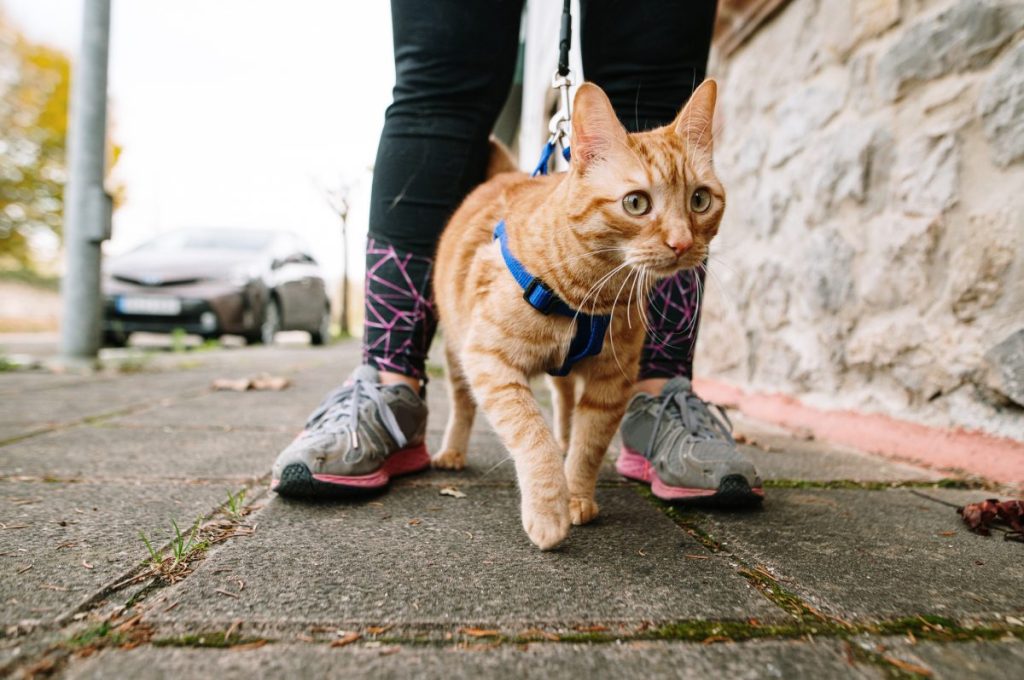Residents of a North Carolina town were recently reminded of a 50-year-old law. The law states that pet cats must be leashed when outdoors, unless they’re in their owner’s yard.
As reported by The Messenger, The Town of Cary’s Animal Services posted a notice on Facebook. The post cautioned residents that violations of this rule could result in fines of up to $250 — depending on the frequency of offenses. “Cats are independent and easy pets to keep, but did you know that there is a leash law for them in the Town of Cary?” posted town officials. They added, “That’s right, cats must be leashed when not on their owner’s property.”
There are plenty of reasons why this practice is recommended. According to the animal services department in a Raleigh suburb of roughly 176,000 inhabitants, roaming cats are a major concern as:
- Cats are responsible for the death of over 1 million birds annually
- They rank as the top predators of small mammals
- Cats can cause damage to properties, gardens, and cars
- Potential disputes between neighbors
The department suggests teaching outdoor cats to live indoors. House cats usually enjoy longer lives and aren’t at risk of being hit by vehicles or harmed by other animals, they explained.
Stray cat concerns spark North Carolina ordinance
The News & Observer reports that a significant number of homes in the city own cats. Moreover, animal services’ annual calls suggest that roughly 20% are about stray or ferals, cat litters, or feline backyard bird hunts.
Chuck Haggist, the supervisor of Cary Animal Services, disclosed that they receive approximately 5,000 calls each year. He also clarified his department’s message to locals isn’t to apprehend unleashed cats, but to caution them about dangers cats face outside and the risks they could pose to people.
He states that for a variety of reasons, outdoor cats tend to have a different lifespan than indoor cats. This includes risks such as getting lost, being struck by cars, and suffering injuries or fatalities caused by other animals.
Other regions in Wake County, as well as various other cities statewide, have enacted similar regulations. In Cary, the law imposes a penalty of $20 for the first offense. This amount increases to $50 for the second offense, $75 for the third, and $100 for the fourth.
A fifth offense would cost the pet owner a fine of $250, and the possibility of the pet being seized. Additionally, owners would have to cover the animal services expenses to get their pets back.






